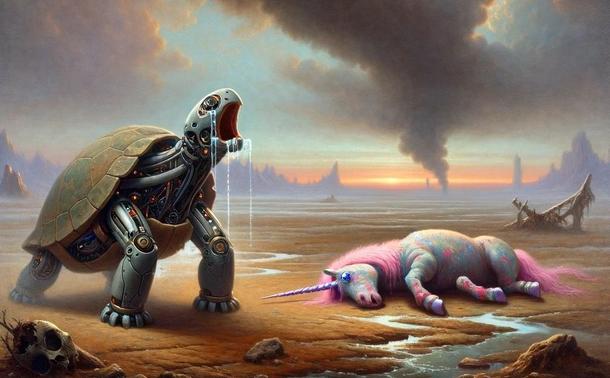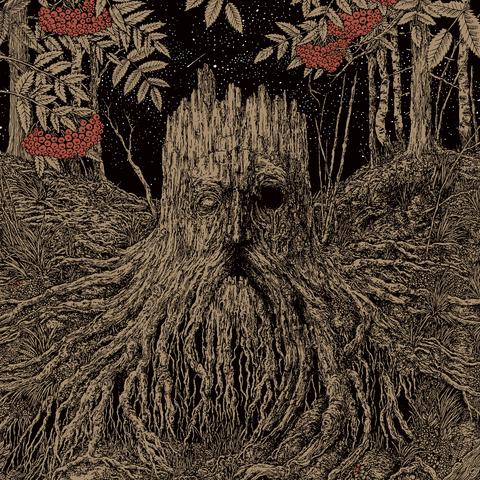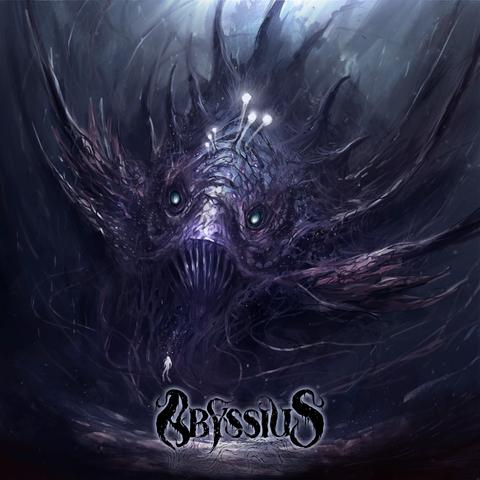Confess – Destination Addiction Review
By Owlswald
What happens when you’ve survived the unthinkable? This haunting question moves Destination Addiction, the fourth album by Iranian/Norwegian groove metal duo Confess. Following the release of 2015’s In Pursuit of Dreams, frontman/multi-instrumentalist Nikan Khosravi and DJ Arash Ilkhani endured a harrowing eighteen-month imprisonment by the Iranian government on charges of blasphemy and propaganda against the state. The story of their incarceration and subsequent escape to Turkey while appealing their six-year sentences has much online documentation, which earned them broad support from the global metal scene.1 Despite a punitive sentence from an Iranian court in absentia2 Confess obtained asylum in Norway and channeled their rage into 2022’s Revenge at All Costs. The New Wave of American Heavy Metal (NWOAHM) and thrash-influenced release landed them a spot on Nile’s European tour and a legendary session drummer in George Kollias for the new record. With the threat of persecution now behind them, Confess is ready to unleash Destination Addiction on the masses.
Bolstered by Kollias and top-notch production, Confess has honed their craft on Destination Addiction. The potent one-two punch of Kollias’s nimble hand-foot patterns with Khosravi’s seven-string attacks propels Destination Addiction forward with raw unabated strength, injecting a sharp death metal edge into an otherwise familiar tone. The bludgeoning grooves of opener “Built on a Grave” and the blasting brutality of “Only Shackles to Lose” harken back to Anticult-era Decapitated. Additionally, the polished and balanced mix, with its monstrous guitar and drum tone, further magnifies the material’s quality and authenticity, with the influences that fueled Revenge at All Costs remaining alive and well. Lamb of God shredding (“After Goliath”) and Slipknot enthused anthems (“Expedition,” “Origami God”) frame Khosravi’s vitriolic, dirty growls, nu-metal screams, and pensive vocals amidst Ilkhani’s turntable manipulations. With the weight of their past torment, and Kollias’s exceptional drumming driving their refined sound, Destination Addiction’s raw emotion and anger explode through the speakers with undeniable force.
Confess holds great strength within its explosive energy with the instrumental prowess between Kollias and Khosravi generating power enough to fuel your New Year’s gym resolution. Incorporating brooding buildups and breakdowns amidst their heavy grooves and death-inspired onslaughts, the guitar-drum juggernaut effectively balances extreme aggression with accessible hooks that keep me coming back for more. Ferocious palm-muted riffs, relentless blasts, and hardcore slams ignite “Built on a Grave” and “Slaughterhouse,” while “Only Shackles to Lose” and “Breathe In. Breathe Out.” deliver a devastating finale of pummeling double bass, pit-inducing thrash, and syncopated paradiddle patterns. Khosravi’s vocal veracity elevates the vigor of the music through spirited cadences and excruciating howls, their aggressive and vengeful tone matching the emotional weight of the subject matter.
This cumulative ferocity makes it even more disappointing when the pace and intensity of Destination Addiction falters through the album’s midpoint. After an intriguing start, the overlong “Dark on Both Sides” succumbs to a familiar nu-metal-tinged formula of string bends and open chord progressions, while Ilkhani’s turntablism and Khosravi’s ordinary growls struggle to pick up the slack. The Machine Head-esque “Final Lap” suffers a similar fate, sprawling into an aimless, multi-minute ramble in its back half, derailing the momentum built by the initially engaging disparity of plodding harmonics and whirlwind bouts of tremolos, blasts and string rakes. Thankfully, the thrashing movements of “Suicide Song” and “After Goliath,” including an impressive guest solo by Marzi Montazeri (ex-Superjoint Ritual), help bridge the gap between the strong front and back halves until Confess recapture their gusto.
Confess has taken a large step forward with Destination Addiction, channeling their rage and resilience yet again into a refined sonic assault that leaves little doubt that they mean business. The addition of a drummer of Kollias’ magnitude, coupled with a crisp and polished production, has elevated their sound to new heights. While a couple tracks falter, Destination Addiction succeeds overall in delivering a potent blend of death, thrash, and NWOAHM grooves that transmits the raw energy, aggression, and emotional intensity of the unimaginable adversity Khosravi and Ilkhani have faced. Born from distress, as some of the best music has been, Destination Addiction leaves a lasting impression.
Rating: 3.0/5.0
DR: 7 | Format Reviewed: 320 kbps mp3
Label: EVIN Productions
Websites: confessband.com | confessband.bandcamp.com
Releases Worldwide: January 31, 2025
#BlackMetal #Confess #DestinationAddiction #EVINProductions #InternationalMetal #Jan24 #Review #Reviews






